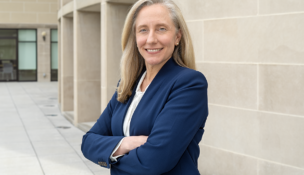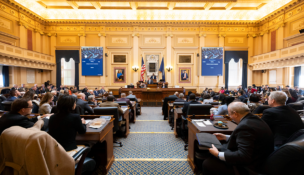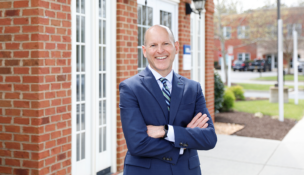Finding a prescription for Medicaid
Thorny issue could test relations between McAuliffe and the General Assembly
Finding a prescription for Medicaid
Thorny issue could test relations between McAuliffe and the General Assembly
Expansion of Virginia’s $5.5 billion Medicaid program is shaping up to be one of the most contentious issues facing Gov.-elect Terry McAuliffe and the Virginia General Assembly.
At stake is the possibility of providing health coverage to as many as 400,000 low-income Virginians — and garnering billions of dollars for Virginia’s economy.
Proponents of expansion say the commonwealth shouldn’t decline an estimated $21 billion in federal funding during the next nine years. Opponents worry the state would be on the hook for huge expenses down the road, especially if the federal government reneges on its promise to pay most of the expansion costs.
The issue pits McAuliffe, a Democrat, against a Republican super majority in the House of Delegates. While McAuliffe and Speaker of the House Bill Howell have found common ground on some subjects, such as reforming standardized tests in public schools, they remain far apart on Medicaid expansion.
“[Medicaid expansion] will create up to 30,000 new jobs, and it’s going to be 21 billion of Virginia’s taxpayer dollars [coming] back to Virginia,” says McAuliffe, citing job growth figures from a study by Richmond-based Chmura Economics and Analytics commissioned by the Virginia Hospital and Healthcare Association. “I’ve always said this is the right thing to do, but it’s also smart business.”
Howell, however, questions these claims. “There’s no question in my mind that the federal government is not going to keep paying billions of dollars to Virginians to expand Medicaid,” he says. “We should not increase a broken system by 30 percent under the false hope of giving these people decent care and creating new jobs and booming the economy. The facts just don’t permit that.”
While everyone gets to weigh in, the decision currently lies in the hands of a commission of seven Republicans and three Democrats appointed last year by chairmen of the General Assembly’s money committees. If the commission can’t come to an agreement on expansion, McAuliffe and proponents of expansion will be looking for another way forward. Navigating this thorny issue could indicate how well McAuliffe and the legislature will work together during the next four years.
How we got here
The U.S. Supreme Court’s 2012 decision on the Affordable Care Act created the challenge that Virginia and many other states face today.
While upholding most provisions of the health-care law, the court ruled that the federal government could not force states to expand their Medicaid programs.
For states that do not expand the program, the ruling creates a health coverage gap for some low-income residents and puts a major financial strain on hospitals.
Under the ACA, Medicaid expansion would add residents with incomes of up to 133 percent of the poverty level (or 138 percent under a revised formula). That means coverage would be extended to families of four with incomes of up to $32,499.
These new eligibility guidelines could add 400,000 people to Virginia’s Medicaid program, although it is estimated that about 250,000 would enroll in the program under expansion. Currently, Medicaid enrolls 877,000 people, covering mostly children, pregnant women, the aged, the blind and disabled adults. Even the poorest residents without children are not eligible under the current rules, and parents are covered only if their income is 33 percent of the federal poverty level, an income less than $7,300 for a family of four.
If Medicaid isn’t expanded, some low-income Virginians would fall into a health coverage gap. They can’t enroll in Medicaid, and they can’t qualify for premium subsidies on the new health insurance exchanges if their income isn’t above the 138 percent threshold.
A decision not to expand Medicaid also puts Virginia hospitals in a major bind. The ACA cut Medicare payments to hospitals, as well as DSH (Disproportionate Share Hospital) payments. That money is provided to hospitals that treat a large number of Medicaid or uninsured patients.
The cuts were based on the ACA’s premise that hospitals would see fewer uninsured patients because almost everyone could be covered as a result of Medicaid expansion or insurance purchased on the federal exchange.
“The first problem that hospitals have is that they are already receiving substantial reductions in payments for Medicare services,” which might not be offset by the expansion of Medicaid, says Laurens Sartoris, president of the Virginia Hospital & Healthcare Association. “There’s no replenishment of coffers. Those cuts were made in anticipation of reducing uncompensated care, and no one knows the extent to which that will happen.”
These cuts will be especially difficult for Virginia’s two academic hospitals, at Virginia Commonwealth University and the University of Virginia. They receive 83 percent of the DSH payments in Virginia because of the high number of low-income patients they treat.
The Virginia Department of Medical Assistance Services estimates the two hospitals will lose $500 million to care for uninsured patients between 2017 and 2022.
About half of VCU’s discharges are either uninsured or on Medicaid, says Sheryl Garland, vice president for health policy and community relations at the VCU Health System. An estimated 60 percent of emergency room visits by these patients are non-emergencies or visits that could be handled in primary care.
Under ACA, DSH payments to Virginia will be reduced starting this current fiscal year by $8.7 million. The reductions gradually will increase until fiscal year 2019, when Virginia will take a $93 million hit in DSH payments.
“If the state does not expand Medicaid and the cuts remain intact, we will face considerable difficulty in later years, primarily in 2017 and beyond,” says Garland. “We’re looking at reducing our costs and how it is that we can work with the state to soften the blow as much as possible.”
To expand or not?
For Medicaid expansion proponents, the decision is easy. Take the federal money.
The federal government has promised to cover 100 percent of a state’s cost for expansion through 2017. The federal share gradually would fall to 90 percent by 2022.
“We should not allow our hard-earned tax dollars to go to other states to make their citizens healthy and more economically competitive with us,” says McAuliffe.
The governor-elect has been trying to make an economic case for expansion, saying that a bigger pool of insured Virginians will create a better, healthier workforce. He also says employers should support Medicaid expansion, because the cost of caring for uninsured Virginians ultimately means higher insurance premiums for everyone.
“If the business community doesn’t make this their top priority, it’s probably not going to happen,” McAuliffe told reporters in Richmond in early December. The Virginia Chamber of Commerce has included the Medicaid reform and expansion in Blueprint Virginia, a wide-ranging plan suggesting improvements to keep the commonwealth competitive.
But opponents are raising questions about what expansion could mean for Virginia’s bottom line. They doubt the federal government can afford to cover Medicaid expansion when it already faces a $744 billion deficit in the current fiscal year.
“My main concern is the fact that I don’t think the federal government is going to have the money long term for support in the states,” says Del. Steve Landes, R-Weyers Cave.
By 2022, when the federal government’s share is expected to drop to 90 percent, Virginia’s net cost will be more than $200 million that year, according to the Virginia Department of Medical Assistance Services.
Virginia’s Medicaid program already takes up about one-fifth of the state’s general fund, the pot of money used to provide essential services such as education and public safety.
Landes says that, if the federal government pulls back on Medicaid funding, the General Assembly would face unpleasant choices to balance its budget, such as cutting the program’s enrollment, reducing its services, cutting other government services or raising taxes.
Caught in commission
The wisdom of expanding Virginia’s Medicaid program is being deliberated by the 10-member Medicaid Innovation and Reform Commission (MIRC). The commission was created as a potential pathway to Medicaid expansion in exchange for Democratic support of Gov. Bob McDonnell’s landmark transportation funding bill, which passed last year.
The commission can choose to expand Medicaid as long as certain reforms are implemented in Virginia’s current program.
The panel, made up of five senators and five delegates, has been accepting public comments, hearing expert testimony and overseeing Medicaid reforms since June.
But the clock is ticking, and the commission still appears far from making a decision.
The federal government’s payments to states that chose to expand Medicaid began Jan. 1. If MIRC approves Medicaid expansion soon, the earliest Virginia could begin enrolling residents into an expanded program is July 1, according to MIRC’s chairman, state Sen. Emmett W. Hanger, R-Mount Solon. That means Virginia will miss out on at least $800 million in federal payments it could have received for Medicaid expansion in the first six months of the year.
This is important because the federal government will cover 100 percent of the cost of the program only through 2017. The commonwealth will not be able to regain the money missed by a late start.
The commission “is a work in progress,” says Hanger, who supports Medicaid expansion. “We aren’t at a decision point, but we continue to work to try and find some avenues where we could come to agreement, where we could move forward.”
Expansion requires agreement from three of five commission members from each house, and many of them are openly opposed to the move. A decision to expand would not require further approval by the General Assembly.
Landes, MIRC’s vice chairman, is one. He believes the commission has helped reform Virginia’s Medicaid program, but he doesn’t see expansion as an option.
“The reforms that we’ve got on the table right now are really a long way from determining whether they work or not,” he says. “I think the commission is in tune to making sure the reforms we put in place are showing some progress … We’re not ready to rush a decision on expansion.”
McDonnell’s budget proposes a sunset clause on Medicaid expansion for June 30, 2016 to determine whether Medicaid reforms have worked. But pulling back on expansion would be difficult politically.
A Virginia way?
One alternative to Medicaid expansion is offering a market-based approach to health-care coverage for low-income residents. In September, Arkansas became the first state to receive federal approval for a program called “premium assistance.”
Under the plan, Arkansas will use federal money earmarked for Medicaid expansion to pay the premiums for new enrollees on the health-care exchange. The agreement with the U.S. Centers for Medicare and Medicaid Services (CMS) lasts for three years, at which time both sides will decide whether to renew.
Other states, such as Pennsylvania and Iowa, also are pursuing alternatives, which have not yet been approved by the CMS.
Virginia Secretary of Health and Human Services Bill Hazel has suggested a Virginia option could include using a broker to manage enrollment through the private health insurance market, establishing commercial-like insurance benefits that require patient responsibility and creating “Centers of Excellence” for high-cost enrollees.
McAuliffe has said he would consider this option, although a more detailed version hasn’t yet been developed.
“I’ve said that I’m open to looking at all options,” says McAuliffe. “I have been an entrepreneur my whole life. I go into negotiations, and I have never taken anything off the table.”
Landes says he still has concerns about this option, such as whether such an agreement could include an “opt out” provision, allowing Virginia to drop out if the federal government didn’t pay what it had promised.
Finding common ground
All parties seem to agree on one point — major reforms are necessary for Medicaid expansion. Hanger and Landes see MIRC as a key forum for changing Virginia’s program. “I have believed from the start that we have a great opportunity because of the circumstances that we are confronted with that we can do more than minor reforms in the Medicaid delivery system,” says Hanger. “We can address some of the trends in the heath-care delivery system in general.”
Landes adds that he could see MIRC guiding long-term reforms for two to four years.
Many short-term initiatives already have begun or are in process, including enhancing fraud prevention, putting foster-care children in managed care, implementing a new eligibility and enrollment system, and providing better oversight of community behavioral health services. Reforms are projected to save $96 million a year in general fund spending by 2022.
A longer-term, more difficult reform includes more cost-effective managed and coordinated care for people receiving long-term care. In Virginia’s Medicaid program, the aged, blind and disabled account for 30 percent of Medicaid enrollees but 65 percent of expenditures.
Beyond agreement on reforms, the future of Medicaid expansion remains uncertain. Some General Assembly observers say it will become a budget issue decided at the end of the session.
At least publicly, McAuliffe is putting a positive spin on the issue, saying he’s reached out to all Republican members of the General Assembly, seeking common ground.
“When I’ve reached out to the Republican legislators I’ve started every conversation, ‘Where can we agree. What are the things that we agree on?’” says McAuliffe. “Let’s get the things done that we can agree on, and I want to do the same thing as it relates to the Medicaid expansion.”
C


















